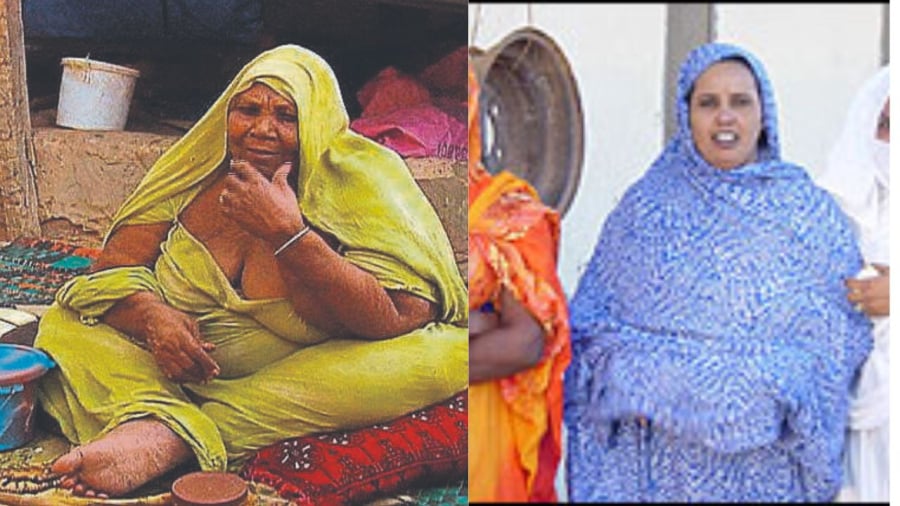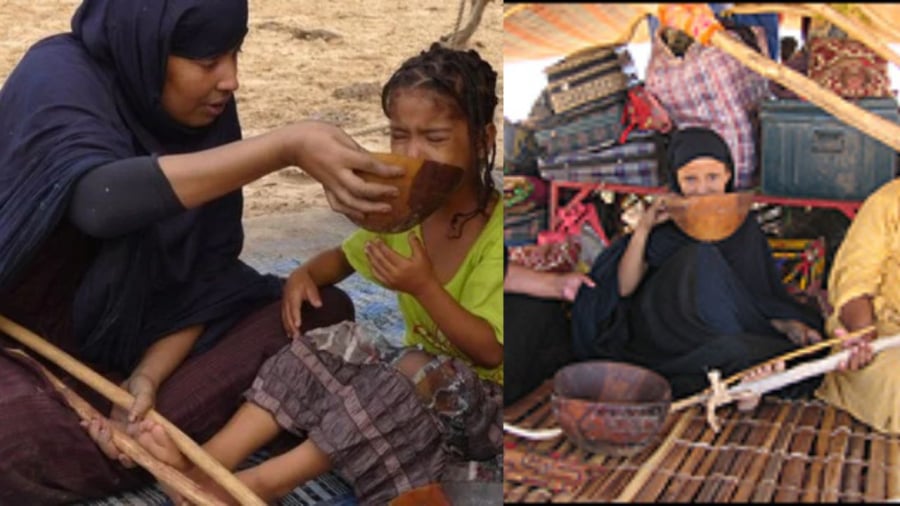In a world that often glorifies slimness, Mauritania, a West African country, stands out with its unique beauty ideal: the bigger, the better. Explore this fascinating culture and its perception of beauty.
Big is Beautiful and Prosperous
In Mauritania, a woman’s beauty is not defined by a slender waist or endless legs. Instead, a fuller, curvier physique is admired, with a rounder figure signifying attractiveness and high social status. Traditionally, a plump woman is seen as a sign of wealth and good health, indicating that she comes from a family that can provide for her and that she is capable of bearing healthy children.
This is not a passing fad but a deeply ingrained belief that has persisted through generations, even as the world modernizes. In many rural areas, this cultural standard remains influential, especially when it comes to traditional marriages and the perception of women’s beauty.

Gavage: Preparing for Marriageable Age
One of Mauritania’s most controversial practices is “leblouh,” the act of force-feeding young girls to prepare them for marriage. From as early as eight to ten years old, girls are pressured to consume enormous amounts of food daily, including camel milk, porridge, cereals, and fatty meats. This harsh regimen aims to accelerate weight gain, sometimes causing pain and discomfort.
According to reports, these girls may ingest up to 16,000 calories daily, far exceeding the recommended intake for adults. Refusal to eat can result in punishment, and the ultimate goal is to achieve the “ideal” physique: a round body, smooth skin, thick arms and thighs, and a heavy gait, all of which are considered alluring and a promise of a good marriage.
Beauty as a Symbol of Social Status
In a country plagued by poverty and food scarcity, being overweight signifies that one’s family has the means to provide ample nourishment. Conversely, thinness is associated with illness, poverty, and a lack of vitality. This perception extends to men’s preferences for potential spouses, with heavier women often viewed as more desirable in arranged marriages, sometimes weighing over 176-220 lbs.

Modern Controversies and Change
While the tradition of gavage persists, particularly in rural areas, a shift is occurring among Mauritania’s youth in urban areas. Exposure to the internet, social media, and Western influences has sparked a desire for healthier, more active lifestyles. The government has also initiated campaigns to address the dangers of obesity and its associated health risks, such as diabetes, high blood pressure, and cardiovascular diseases.
Non-governmental organizations are collaborating to educate communities about healthy eating and proper nutrition. However, changing deeply rooted cultural beliefs takes time, and many parents still hold fast to the idea that “bigger is better,” fearing their daughters will struggle to find suitable husbands if they don’t meet the weight “requirements.”
Beauty Unbound by Weight
Mauritania’s story underscores the relativity of beauty standards across cultures. While slimness may be celebrated in some places, in Mauritania, a fuller figure is the epitome of allure and success. Ultimately, true beauty should not be confined to a number on a scale. Every individual should embrace their unique physique, prioritizing health, confidence, and authenticity.
Parents, Embrace These 4 Simple and Easy Modern Parenting Trends Now
Parenting is a challenging journey, and many parents often find themselves overwhelmed with the myriad of concerns and responsibilities. However, by embracing a positive and proactive approach, modern parents can navigate the complexities of parenting with ease. Staying updated with the latest trends and adopting a forward-thinking mindset can transform the parenting experience, making it a simpler and more enjoyable journey.































